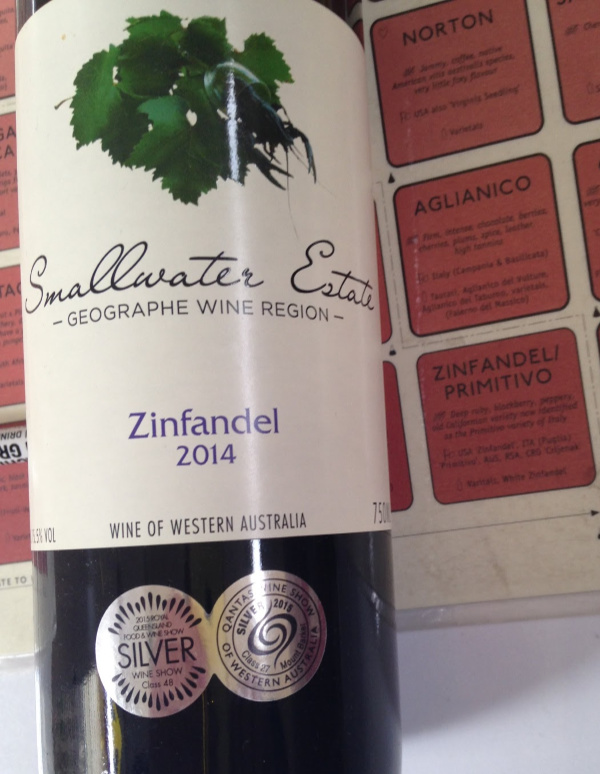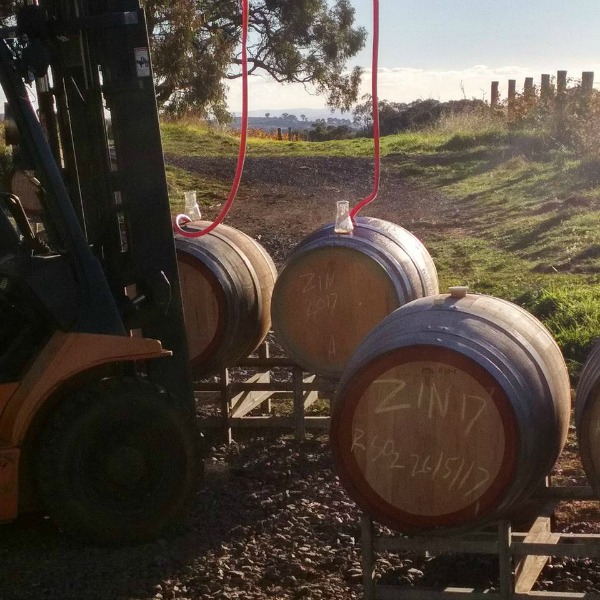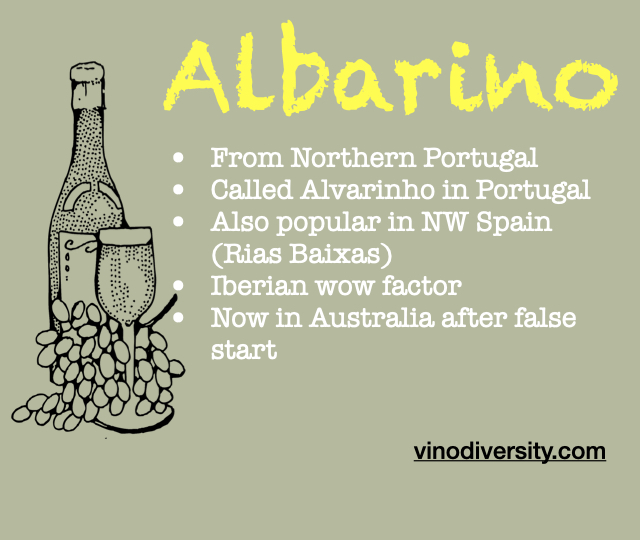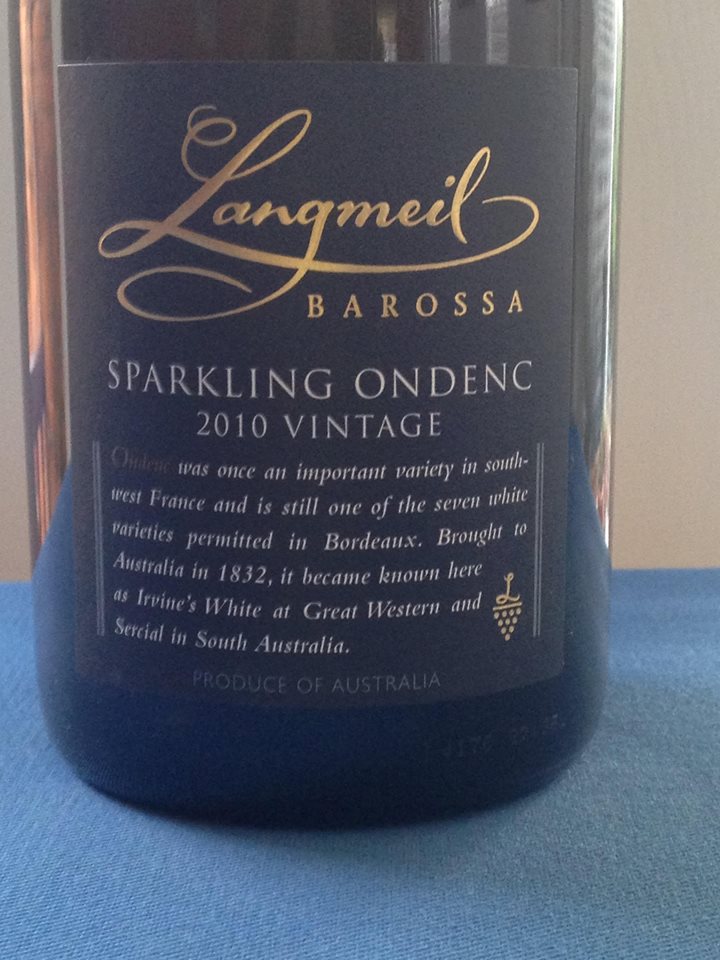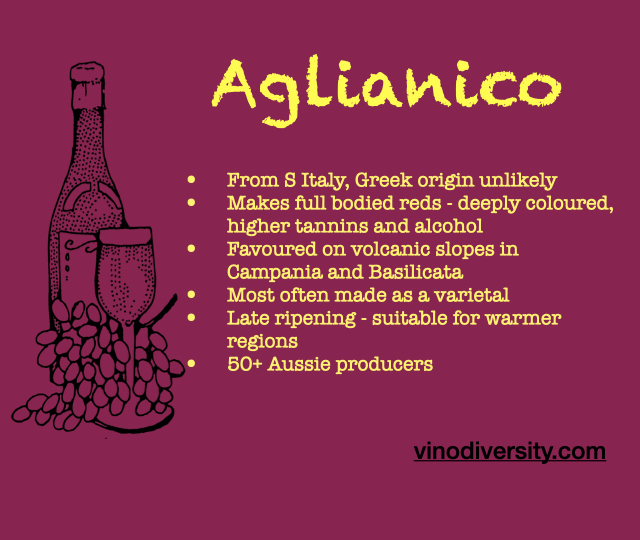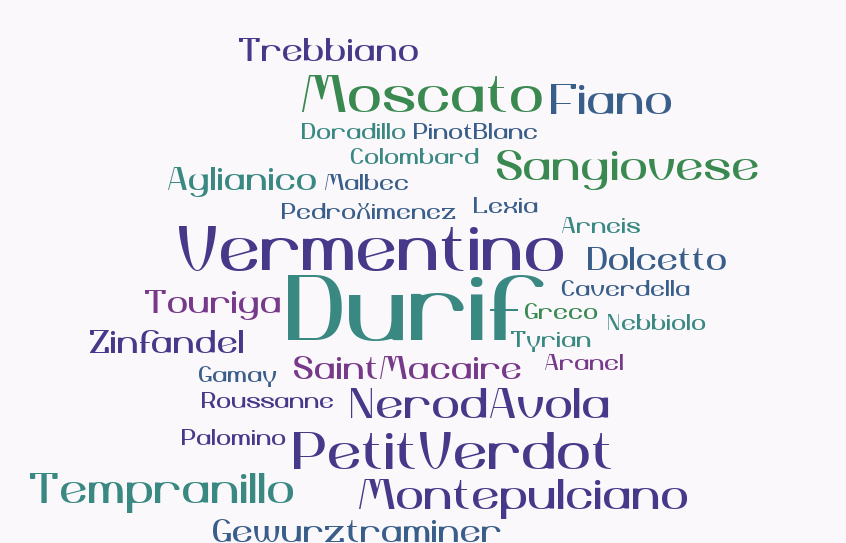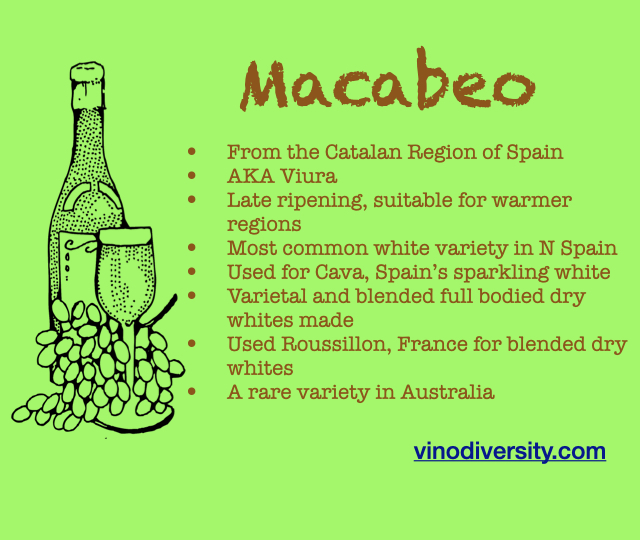Zinfandel Wine variety In australia
For years we argued about whether is more correctly called Zinfandel (USA) or Primitivo (Italy), but recent evidence gives it a Croatian origin.
It's all Zin the name
For several decades controversy surrounded the identity of what were regarded as two separate grape varieties - Zinfandel and Primitivo.
The grapes were obviously very similar, but there was no completely objective way to define whether they were separate varieites, as the Californians argued, or clones of the same variety as the Italians posited.
Not surprisingly, there was a commercial motive in the background as well. Puglian winemakers argued that they should be able to market their wine in the USA as Zinfandel.
In the 1990s some Croatian winemakers joined the fray contending that the variety they called Plavic Mali was Zinfandel too. They also wanted to be permitted to use that name on wines they exported to the USA.
Just in time DNA profiling technology came to sort things out with some sort of objectivity.
Here is current consensus about this variety, backed by modern DNA analysis as reported in Jancis Robinson's book Wine Grapes.
Primitivo and Zinfandel are genetically identical, hence they can be correctly identified as clones of the same variety, but see more on this below. See this article to understand the difference between a clone and a variety.
Plavic Mali is a similar but distinct variety. DNA shows that it is a cross of Zinfandel and another Dalmatian variety.
It has also been established that the Croatian varieties Crljenak Kastelanski and Tribidrag are also genetically identical to Zinfandel. Mercifully the later name is older and therefore more correct, making life simpler for those of use unfamiliar with Slavic languages.
Each of the four names are acceptable. My guess is that the Italians will keep calling theirs Primitivo and the Americans will use Zinfandel. In Australia winemakers can use any of the names. Those wishing to emphasise the Italian style of their wine are using using Primitivo. Nobody seems to be calling their wine Tribidrag Australia. Yet.
What Zinfandel tastes Like
. . . deep ruby, blackberry, peppery . . .
These are some of the adjectives used for this variety on De Long's Wine Grape Varietal Table
ZInfandel in Australia
Zinfandel has been grown for some time in Australia. Among the pioneers was Cape Mentelle in the Margaret River Region.
Award wining Zinfandel
Eleven Zinfandel wines were judged at the 2023 Australian Alternative Varieties Wine Show. One gold medal, three silver and two bronze medals were awarded. Smallwater Estate of Geographe was awarded The gold medal for their 2022 Zinfandel.
- Arimia Margaret River
- Barrecas Geographe
- Beach Road McLaren Vale
- Box Grove Vineyard Nagambie Lakes
- Buckshot Vineyard Heathcote
- Burge Family Winemakers Barossa Valley
- By Fabiano McLaren Vale
- By Jingo Adelaide Hills
- Cape Horn Vineyard Goulburn Valley
- Cape Mentelle Margaret River
- Cargo Road Wines Orange
- Ceravolo Premium Wines Adelaide Plains
- Chapman Valley Wines Central Western Australian Zone
- Chateau Tanunda Barossa Valley
- Churchview Estate Margaret River
- Ciavarella King Valley
- Coughlan Estate Geographe
- DCB Wine Yarra Valley
- De Bertolis Rutherglen Estates Rutherglen
- De Bortoli Riverina
- Dell'uva Wines Barossa Valley
- Elderton Barossa Valley
- Ernest Schuetz Wines Mudgee
- Flying Duck Estate King Valley
- Fratelli Heathcote
- Gapsted Wines Alpine Valleys
- Groom Barossa Valley
- Grove Estate Wines Hilltops
- Hand Crafted by Geoff Hardy McLaren Vale
- Head in the Clouds McLaren Vale
- Hently Farm Wines Barossa Valley
- Heslop Wines Mudgee
- Hotham Ridge Winery Peel
- Inkwell McLaren Vale
- Irvine Eden Valley
- Jarrah Ridge Winery Perth Hills
- Kabminye Wines Barossa Valley
- Kalleske Wines Barossa Valley
- Kangarilla Road McLaren Vale
- La Curio McLaren Vale
- La Prova Adelaide Hills
- Lambert Estate Barossa Valley
- Langmeil Barossa Valley
- Lenton Brae Margaret River
- Lethbridge Wines Geelong
- Levrier Eden Valley
- Lion Mill Vineyards Perth Hills
- Lowe Family Wines Mudgee
- Mandalay Road Geographe
- Mansfield Wines Mudgee
- Marions Vineyard Northern Tasmania
- Massena Wines Barossa Valley
- Matriarch and Rogue Clare Valley
- McHenry Hohnen Margaret River
- Memento Wines Rutherglen
- Morlet Margaret River
- Morrisons of Glenrowan Glenrowan
- Mudgee Wines Mudgee
- Murray Street Vineyard Barossa Valley
- Nepenthe Adelaide Hills
- Nugan Estate Riverina
- Oak Valley Estate Murray Darling
- Oak Works Riverland
- Peel Estate Peel
- Pepper Tree Wines Hunter Valley
- Petersons Glenesk Estate Mudgee
- Piggs Peake Winery Hunter Valley
- Pirate Cru Barossa Valley
- Pirramimma McLaren Vale
- Purple Hands Wines Barossa Valley
- Quid Pro Quo Hunter Valley
- Red Feet King Valley
- Renzaglia Central Ranges Zone
- Riverbank Estate Swan Valley
- Robinvale Wines Murray Darling
- Rockcliffe Margaret River
- Roenfeldt Hill Barossa Valley
- Romavilla Queensland Zone
- Rowsley Fault Vineyards Geelong
- Rusden Wines Barossa Valley
- Rusticana Langhorne Creek
- Sanguine Estate Heathcote
- Schulz Vignerons Barossa Valley
- Serafino Wines McLaren Vale
- Silent Noise Mclaren Vale
- Silkwood Wines Pemberton
- Smallwater Estate Geographe
- Stefano di Pieri Murray Darling
- Stefano Lubiano Southern Tasmania
- Stockman's Ridge Orange
- Summit Estate Granite Belt
- Tahbilk Nagambie Lakes
- Talisman Wines Geographe
- Tanglefoot Winery Peel
- Tempus Two Hunter Valley
- Terindah Estate Geelong
- Tim Adams Clare Valley
- Tomich Adelaide Hills
- Tscharke Barossa Valley
- Uleybury Wines Adelaide Zone
- Watershed Wines Margaret River
- Waterwheel Wines Bendigo
- Wilson Vineyard Clare Valley
- Wine by Sam Strathbogie Ranges
- Wood Park King Valley
- Yelland and Papps Barossa Valley
Why is Zinfandel so special?
Read what some Aussie winemakers say about Zinfandel in this article.
Zinfandel and food
Zinfandel red wines are often robust and have moderate to high alcohol. Thus they can be combined with all sorts of barbecued meats.
They will also stand up well with spicy Asian dishes, say steak with capsicums and black bean sauce.
You might even try Zinfandel with game meats, say wild boar, hare or grilled kangaroo fillets.
A few years ago I asked some readers for suggestions.
Anthony said
Zinfandel with its opulent fruit characters and the excellent tannins I find works exceptional well with game meats.
I love a kangaroo steak and I find myself reaching for a bottle of Zin every time.
Ann said
"Smoked salmon with horseradish cream"
Hardly surprising as she and her husband Brian are also owners of Newman's Horseradish.
Peter Said
I'm thinking chilli con carne made with chocolate and cumin in the sauce.
What is so special About Zinfandel?
See what some Australian Winemakers Say about Zinfandel

Subscribers to Vinodiversity Community get invites to Darby's Special Taste and Talk Sessions.
Our Site Sponsors
 Cargo Road Wines in the Orange NSW region is a Site Sponsor of Vinodiversity
Cargo Road Wines in the Orange NSW region is a Site Sponsor of Vinodiversity
 Hahndorf Hill Winery in the Adelaide Hills is a Site Sponsor of Vinodiversity
Hahndorf Hill Winery in the Adelaide Hills is a Site Sponsor of Vinodiversity
 Frankly This Wine is made by Bob
Frankly This Wine is made by Bob
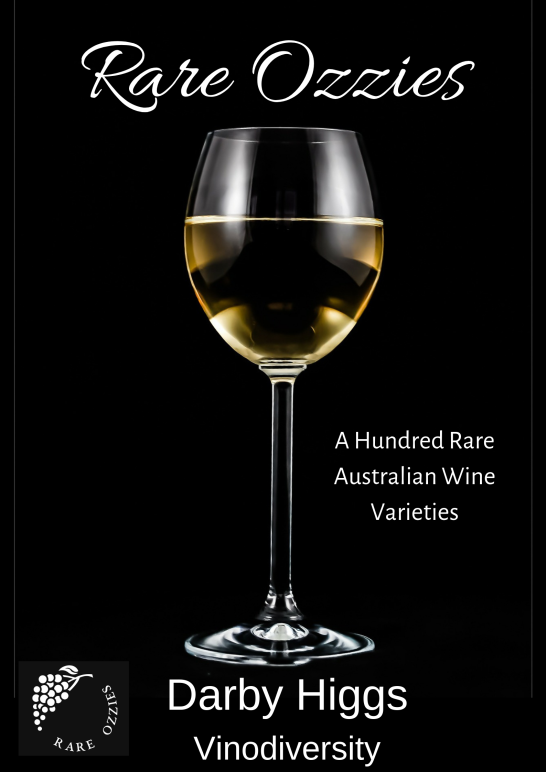 Order this book about Rare Aussie wines
Order this book about Rare Aussie wines
 This book describes the most important wines globally
This book describes the most important wines globally
 Savina Road in the Granite Belt Region is a Site Sponsor of Vinodiversity
Savina Road in the Granite Belt Region is a Site Sponsor of Vinodiversity
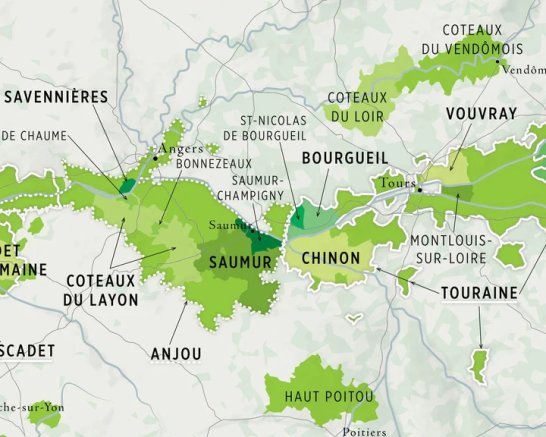 Detail of the new map of France. Italy and Spain also available
Detail of the new map of France. Italy and Spain also available
Become a Site sponsor
You can use this space to promote your winery or wine based business.
See this page for details
Contact Darby for details.
Tweets by @vinodiversity

